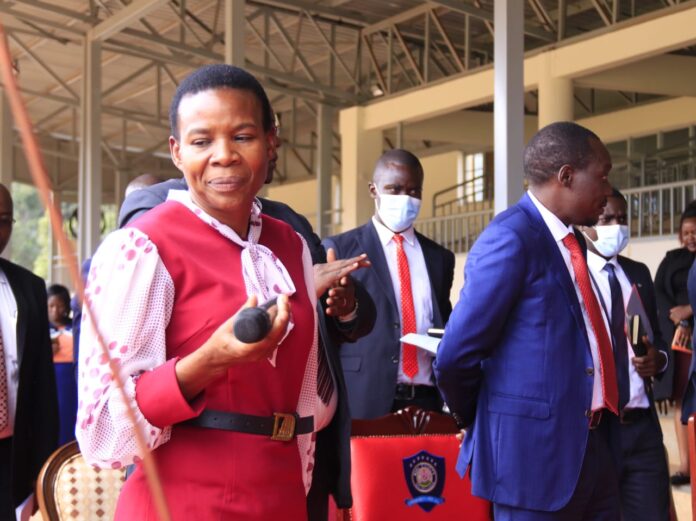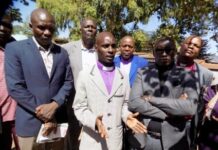By Elizabeth Angira, DevReporter, Kisii County
The 2017 Kenyan general elections marked an improvement from the 2013 polls in the number of women elected to serve in different capacities. The elections saw the first ever women governors and senators elected. A total of six women emerge victorious taking a share of the positions that were previously held by men as notable from the results of the 2013 elections. In total, there are 47 governor and 47 senator positions contested for in any general election.
Despite efforts to improve the participation of women in politics, men still largely dominate the electoral platform in Kenya.
In the year 2017, only three female governors were elected. However, in the 2022 general elections, this number increased to seven.
The seven elected female governors are Susan Kihika (Nakuru County), Gladys Wanga (Homabay County), Cecicly Mbarire (Embu County), Wavinya Ndeti (Machakos County), and Fatuma Achani (Kwale County), Kawira Mwangaza (Meru County) and Anne Waiguru (Kirinyaga County).
Nevertheless, Kenya remains a largely patriarchal society and so far, neither the inclusion of the two third gender rule in the 2010 Constitution, and the civic education that followed its promulgation seem to have changed this mindset.
In Kisii County, with a total of number of 45 wards, only one ward, Bombaba ward, elected a woman, Beatrice Kerubo, as its representative.
In Nyamira County, no woman was elected to any positions other than for the reserved seat of the National woman Member of Parliament.
In Kitutu Chache South, the Jubilee candidate, Cynthia Kerubo, the only woman who expressed interest in vying for the MP seat, only managed to garner 2738 votes against the male ODM candidate winner, Anthony Kibagendi, who won with 14478 votes.
Young Democrats Chairperson Esnahs Nyaramba says that women have numbers and for this reason they are in a good position to support one of their own.
Ms Esnahs states that women are unable to secure more seats despite their population being higher than that of men. She believes that this could be because there are few elected women political figures in the country who could act as role models and enable more women to see the importance of women in elective leadership positions.
She further notes that even for those in power, it seems to take the constituents a long time to trust them, as they are often unsure if they can lead and deliver on their mandates as elected leaders. This could be demoralizing upcoming women, making their decision to join competitive politics a difficult one.
“Those who have been elected are not mentoring the young and upcoming women, so that they can have the urge to venture into politics”, Nyaramba says. She also adds that some of those in power may have failed to fulfill on their promises, leading to the electorate to judge them harshly.
“If I voted for a certain woman and she did not fulfill on the promises she made, there is no need to vote for a woman again”, Esnahs concludes.
Obstacles women face
In Nyamira County, no woman was elected to any positions other than for the reserved seat of the National woman Member of Parliament.
In Kitutu Chache South, the Jubilee candidate, Cynthia Kerubo, the only woman who expressed interest in vying for the MP seat, only managed to garner 2738 votes against the male ODM candidate winner, Anthony Kibagendi, who won with 14478 votes.
Young Democrats Chairperson Esnahs Nyaramba says that women have numbers and for this reason they are in a good position to support one of their own.
Ms Esnahs states that women are unable to secure more seats despite their population being higher than that of men. She believes that this could be because there are few elected women political figures in the country who could act as role models and enable more women to see the importance of women in elective leadership positions.
She further notes that even for those in power, it seems to take the constituents a long time to trust them, as they are often unsure if they can lead and deliver on their mandates as elected leaders. This could be demoralizing upcoming women, making their decision to join competitive politics a difficult one.
“Those who have been elected are not mentoring the young and upcoming women, so that they can have the urge to venture into politics”, Nyaramba says. She also adds that some of those in power may have failed to fulfill on their promises, leading to the electorate to judge them harshly.
“If I voted for a certain woman and she did not fulfill on the promises she made, there is no need to vote for a woman again”, Esnahs concludes.
Obstacles women face
Among the obstacles women often have to deal with included: inadequate political support from their parties, particularly during the primaries; lack of financial resources; gender-based violence; gender stereotyping; and patriarchal structures across society.
Rigena Human Rights Activists chairperson, Thomson Osoro , says that some of the reasons keeping women out of politics include low number of special interest groups registering as voters, financial constraints, intimidation, violence and bribery, negative stereotypes and discrimination against women, election violence, underrepresentation and poor participation in political parties.
He also says that some women do not support their own while others do not have the urge to be in politics.
Way forward
Franklin Nyakundi, a resident, says that women should vote as a bloc and support one of their own and that they should not look down on themselves and each other since they are capable to lead the country.
Nyakundi says that women should come out and see that there is need for them to be in leadership and have a say when it comes to decision-making.
Nyaramba concludes that civic education is needed in the society to educate the public to embrace women’s leadership.






